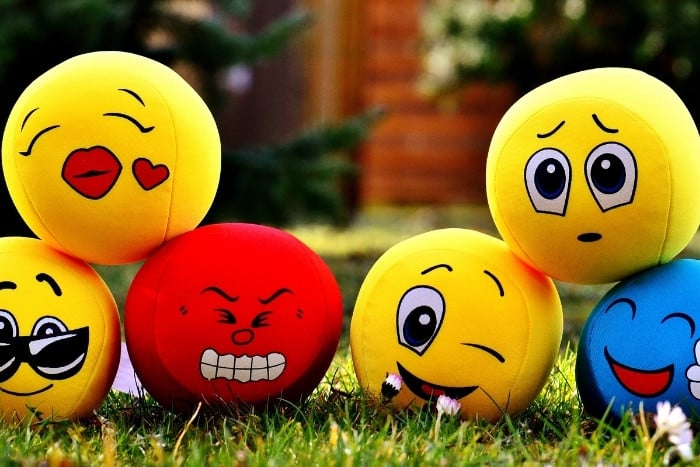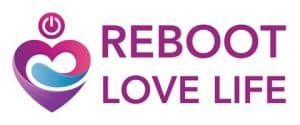The jittery feeling in your stomach, the happy moments, and the desire to always be together: aren’t you in love? Maybe not.
Contrary to popular belief, love is not exactly a feeling. Excitement, anticipation, nervousness, and desire are feelings that may or may not accompany love. In simpler words, love is seen as deeper, more consistent, and longer-lasting than feelings, which are more volatile and temporary in nature.
The truth is: You can be in love and still feel an array of emotions. You must be wondering: but then how could you ever know you’re in love? You’ve come to the right place! Understanding the key differences can help you untangle the likely messy state of your mind and find the truth.
Feelings vs Love – Key Differences
We often experience unexplainable joy and excitement when we have feelings for someone, which can easily be mistaken for love.
Confusing these two for one another can be a bit of an emotional roller coaster that can ruin your romantic experience altogether.
Knowing the difference between feelings and love is very useful as it helps you realize your true emotions for the person, making it easier for you to know what your heart desires.
1. Intensity of the Emotions
One of the key differentiating factors between love and “just having feelings for someone” is the depth of it.
While it is true that several emotions can accompany love, these are generally more intense than in the case of infatuation or attraction.
Since the associated emotions are more intense, their impact on your life and personality can also be much greater.
A common view of this intensity is felt with the pain that comes at the departure of a loved one, as compared to someone you were only acquainted with but admired greatly.
You would still feel terrible that it happened but would most likely move on with your life if you were not close.
However, learning to live without a loved one suddenly can be hard to adapt to and take a long time to heal.

2. Temporary vs Permanent
Due to the differences in intensity, both feelings and love have different durations.
Feelings tend to fade away quickly, whereas love is more long-lasting. For most people, love can last a lifetime, even if they are no longer in contact with that person.
Feelings fluctuate rapidly, and often, a person’s importance can disintegrate as feelings do, making this attraction noticeably temporary.
Of course, having feelings for someone can lead to loving them truly, but that will depend on the compatibility between you two.
Once in love, the passion often continues to burn through life’s challenges without fading away.
Even if they disappoint you or the relationship becomes distant, you will always care about them to some extent – leaving quite a permanent mark in your life.
3. Love is More Steady; Feelings Can Fluctuate
Feelings are powerful but can change faster than we expect, leaving us in a confused state.
You can go from mesmerized to annoyed at the flip of a switch. Emotions will always fluctuate, whether you are in love or not.
If you just have feelings, you may start withdrawing yourself from the other person.
This is why it is essential for people in relationships to talk and work through their feelings because they will change.
But when you love someone, you stick through with them irrespective of how you feel.
Love is steady. You may be frustrated when they make your coffee too sweet again, but you can’t stop loving them anyway.
4. Love is more Generous
Out of any feelings of attachment or infatuation, love will always trump when it comes to selflessness and generosity.
It does not matter what kind of person you are; when you love someone, you get naturally inclined toward providing the best for the person you love.
In simpler terms: Love gives, infatuation takes.
When you feel strongly for someone, you might also find yourself becoming more protective and possessive, even if it’s not the best for the other person.
You are more afraid to lose how they make you feel and cling to it rather than the person itself. But love doesn’t function that way.
In love, you choose happiness and security for the other person, even if it comes with a cost to you.
Feeling jealous, possessive, or attached are not associated with being “in love” – they’re just strong feelings towards a person that arise from the fear of losing.
5. Time (and Progression)
Love at first sight isn’t an actual thing. In the long run, love is “all-seeing”.
It is when you get to know a person in-depth, share moments with them, and feel safe around them that you truly fall in love. And it takes time.
How long it takes will differ from person to person, and the quality and quantity of time you spend with another person, but it is surely not instant.
Each stage of progression can define whether you are falling in love or just working through feelings.
However, as mentioned before, do keep in mind that it is often feelings that will translate into love as it progresses.
Feelings often progress like a roller-coaster, associated with the constant seeking of “the reward system” in our brain.
When you feel for someone, you will see rapid growth in excitement, nervousness, and constant seeking of your partner’s presence and approval.
On the other hand, studies have shown that with lasting love, these cravings and rapid fluctuations diminish with time, but the pleasure and reward continue.
In brief, passion (feelings) slowly moves towards compassion (love).
6. Willingness to Change
The funny thing about having feelings and love is that both tend to bring about changes in you.
When flustered by a person and seeking to impress them, we tend to bring out a better side of ourselves or pretend to be someone we are not.
You are often willing to go to certain lengths to develop a presentable image of yourself so that the person in front of you likes you better.
However, the changes in love can come out more subtly.
While love is accepting of the other person and you feel comfortable being yourself, most people in love not only adopt their partner’s habits but change themselves for a more harmonious relationship.
If a habit causes your partner pain, you would most likely be willing to drop it. Changes that come with feelings only last until you are comfortable.
They are usually on the surface, whereas changes in love are deep-seated and impactful.

7. It’s All In The Hormones
Ultimately, we all know that our feelings are just a bag of chemicals.
From hunger to fear, from attraction to disgust – emotions can be traced to the head. So can love and infatuation.
It’s so vital that we also named it the “love hormone” – or technically speaking, oxytocin.
Oxytocin is usually what helps you bond and trust someone and is a social phenomenon.
Depending on which one we’re talking about, feelings will have their own hormones associated.
Most attraction or lust relies on dopamine – the “feel good” hormone or the reward system. The thing about dopamine is that it’s addictive and makes you crave more.
Oxytocin and dopamine often go hand in hand but act differently and are released differently. Oxytocin is a stress-buster and calms you down.
Dopamine, however, can make you feel jittery and want more.
The “love” hormone comes into the picture when you engage in gentle acts and spend quality time getting to know each other.
In contrast, dopamine is released by engaging in erotic activities, having date nights, or in a vague way, by “getting what you want”.
8. What’s At Stake?
Love is deep and inclusive. It affects every segment of your life. With so much power, love puts a lot more at stake than feelings do.
Since you are more invested in a loved one, losing them can be harder than losing someone you just have feelings for.
In other words, since love takes more time, you invest more time into a loved one.
The more time you invest, the more you try your best to stay with that person for longer. Moreover, you tend to trust the person you love a little more.
This means that they become a part of your life, you share your vulnerabilities and your truth with them. With love, you’re fully unguarded.
There’s always more at stake because you are truly vulnerable in front of them. That does not mean that there’s nothing at stake when you feel for someone.
It can also be hard to get over feelings of attachment, but in most cases, they do not have such a lasting consequence.
9. The Source of Affection
Irrespective of listing innumerable differences, it can still be difficult to know whether you truly love someone or are only feeling for them.
To figure this out, you should try to see how it began and the trajectory of your bond.
How you meet a person, build an opinion of them, and begin to get comfortable with them are all essential factors.
How you got to know them tells whether you truly know them or just have an ideal image of them in your head. Love embraces all.
It happens when you learn to see someone as they are and appreciate it. Thus, to be in love, you must know the person rather than an image of them.
If your affection and desire arise through social media, talking about them among your circle, or seeing them from afar – it is most likely a repercussion of feelings.
When your desires grow as you hang out, fight, or make mistakes together and forgive them – it turns into love!
10. From Their Best to Their Worst
How you treat, address, and think about their best and worst moments is a huge indicator.
Feelings tend to largely notice the best things about someone – their best features, their good habits, and their desirable personality traits.
You might even overlook red flags or behaviors you generally do not approve of.
You project an ideal, illusory image of that person that cannot be held for long and is bound to shatter with time.
Love, on the other hand, treats the best and worst moments equally.
Love comes with awareness – you are aware of what about them annoys you, what makes you happy, what you like and dislike, and yet choose to treat your partner well, all the same.
That person’s desirability is not affected by the flaws they have shared with you and are working on.
Can You Have Feelings And Not Be In Love?
Since feelings and love are two separate entities, it is possible to have one and not the other. Feelings are easier to come by, making it common for most people to first strongly ‘like’ before they love. It is also easy to mistake feelings for love because of the surge of emotion that comes with it.
Whether you fall in love or not after feeling for someone is a whole different story, and one you shouldn’t worry about either.
If you’re concerned about mistaking feelings for love, here are the most common cases where you may have feelings that feel like love, but aren’t:
1. You’ve Just Started Hitting It Off
During the initial stages of getting to know someone, most people tend to develop feelings, but they’re not in love yet.
Throughout dating, several people have been in a position of building up strong feelings and not falling in love.
It is also easy to mistake feelings for love. Love takes time and effort, and you won’t find it with every other person.
Sometimes, a person is great company, but you can’t allow them into the comfort of your home or your personal life.
If you’ve only met this person, hardly know them, but they still make you feel like you’re on top of the world – you most likely just have feelings.

2. You Don’t Really Get Along
This is a tricky one. There are certain moments you love being with them, but then there are certain circumstances, conversations, or activities you would completely avoid.
You continue to feel a strong pull towards them when you enjoy times together.
But you would never talk about the future you don’t agree with or tell them how their smoking concerns you.
Whether you avoid it or get into constant on-and-off battles about it – chances are you aren’t exactly the most compatible.
You may still feel for them in the good times, but you don’t want to get through with the bad ones or make them better.
It can often seem like love, but it isn’t sustainable in any form.
3. You Need Someone Or Seek Constant Validation
Often, we turn a blind eye to the truth when we feel needy.
Changing for your partner in little ways can be love, but if you constantly shift to being someone you are not to seek validation or be accepted by your partner – it’s not love.
You can be mesmerized by them, idolize them, and as a result – want them strongly.
You may love how it feels when they give you attention, show you care, or have someone to come back home to – but it is often just the idea of it that keeps your feelings burning – not love itself.
It can be confusing to point or know where to draw the line. The best way is to work on yourself and learn to be in your own company.
It is when you are happy on your own that you realize whether you truly want someone, or are blinded by an array of underlying emotions.
Conclusion
Love and feelings aren’t the same. It is rare for someone to say “They feel love” – they may feel loved by someone else, or feel attracted to someone.
Love is deep-seated and lasting, not a momentary emotion. Feelings, however, are quite surface-level. It can still be easy to confuse them in the heat of the moment.
Your best bet is to keep your mind sound, stop jumping to conclusions, and see how it goes. Feelings will fade, and love will show up with time.
